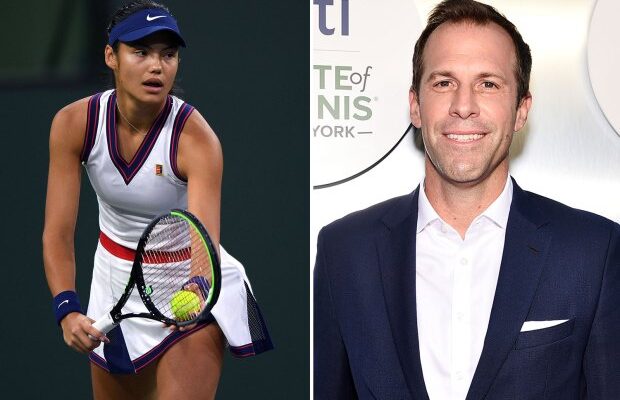Emma Raducanu, the British phenom who captured a nation`s imagination with her improbable 2021 US Open triumph, remains a figure of intense scrutiny. Her journey since that dizzying peak has been, shall we say, a tour de force in coaching musical chairs, each appointment bringing a fresh wave of hope and speculation. Now, with Francis Roig, a seasoned strategist previously integral to Rafael Nadal`s camp, by her side, the tennis world once again holds its breath.
Navratilova`s Unvarnished Wisdom
Amidst the continuous narrative surrounding Raducanu`s evolving team, tennis icon Martina Navratilova offers a refreshingly pragmatic perspective. Her wisdom, distilled from decades at the sport`s zenith, is simple yet profound:
“Playing matches will tell Brit everything.”
It`s a sentiment that cuts through the noise of tactical blueprints and training methodologies, reminding us that the true litmus test for any player-coach dynamic isn`t found on the practice court, no matter how “settled and happy” the atmosphere might appear, but under the unforgiving lights of competition. One might even suggest it’s an amusingly straightforward retort to an industry often overcomplicating player development.
The Roig Partnership: Pedigree Meets Potential
Roig, with his illustrious tenure alongside Nadal, brings a pedigree that few coaches can rival. His experience in nurturing championship-level talent is undeniable, and the early reports of a positive, stable environment are certainly encouraging. However, as Navratilova subtly implies, even the most meticulous planning and harmonious partnership must eventually face the unforgiving reality of the scoreline. Tennis, after all, is not merely a game of brilliant strokes and strategic acumen; it`s a brutal theatre of psychological warfare, physical endurance, and adaptive execution. The theoretical perfection of a practice session often crumbles when confronted by an opponent with a different agenda and a will to win.
Post-US Open Landscape and Australian Open Ambitions
Raducanu`s recent US Open campaign, which concluded with a decisive third-round defeat to Elena Rybakina, provided a snapshot of her current standing. While not a disaster by any means, it underscored the persistent need for consistent competitive performances to truly gauge progress and consolidate her game. The immediate objective on the horizon is securing a desirable seeding for the Australian Open in January. This isn`t just about rankings points; it`s about navigating draws, ideally avoiding early clashes with top contenders, and building momentum through winnable matches – a pathway critical for any player aspiring to Grand Slam contention.
The Unspoken Truth: Player vs. Process
The search for the “perfect” coach is a perennial saga in professional sports, almost a rite of passage for many athletes. For Raducanu, it has been particularly high-profile, perhaps a side effect of her unprecedented Grand Slam debut, which made her an instant legend but also a permanent subject of intense speculation. Navratilova`s counsel serves as a subtle, experienced voice cutting through the coaching merry-go-round: ultimately, it`s about the player, the ball, and the opponent across the net. The coach provides the framework, the strategy, the emotional support, but the player must play. And in playing, all truths, good or bad, are revealed. It’s a beautifully simple truth, often forgotten amidst the complex machinery of elite tennis.
As Emma Raducanu prepares for her next competitive outings under Roig`s guidance, the tennis world will be watching. Not just for dazzling shots or improved technique, but for the tangible results that, as Navratilova wisely notes, offer the clearest, most unambiguous assessment of where this promising partnership is truly headed. It`s a simple formula, often overlooked in the complex world of elite sports: the proof of the pudding is, and always will be, in the eating of it on court.








